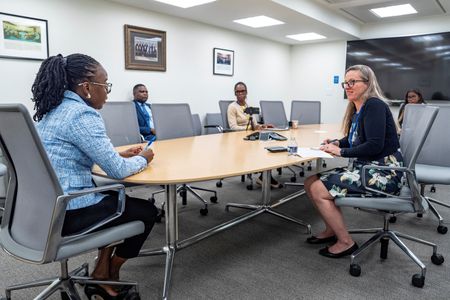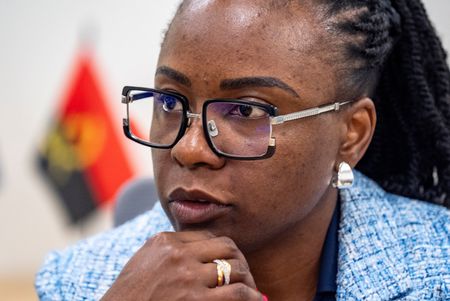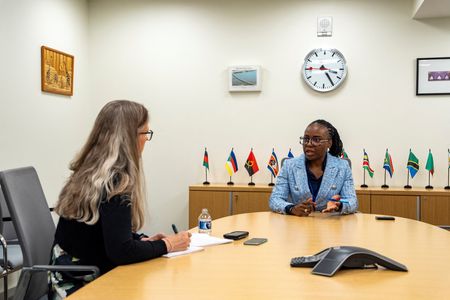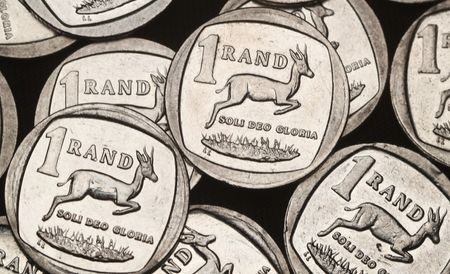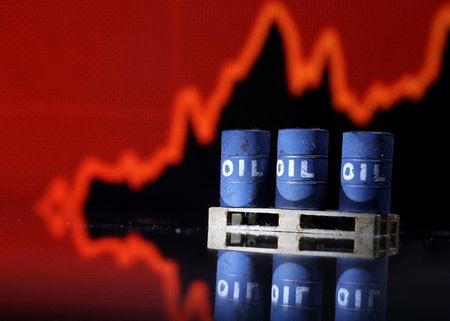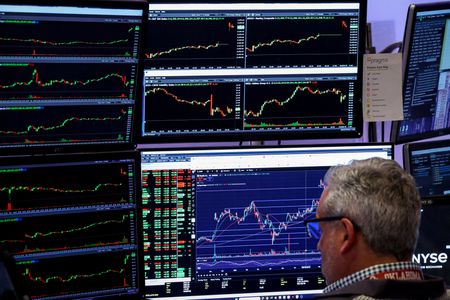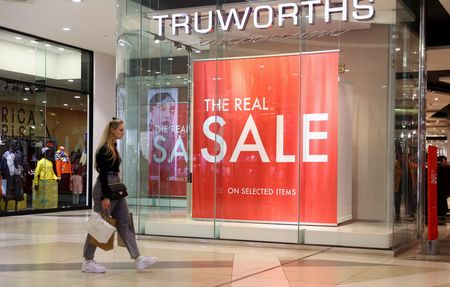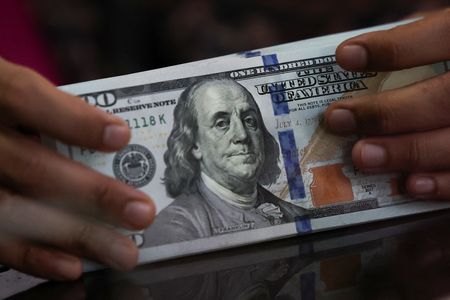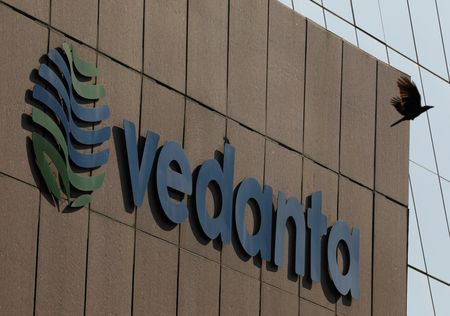By Karin Strohecker
WASHINGTON (Reuters) -A slide in crude oil prices is increasing the likelihood that Angola will need an International Monetary Fund loan, Finance Minister Vera Daves de Sousa told Reuters, adding the government is running stress tests to gauge the impact on its finances.
Sub-Saharan Africa’s second-biggest crude oil exporter has based its 2025 budget on an oil price of $70 per barrel, but Brent oil futures briefly traded below $60, the lowest level in four years, after U.S. President Donald Trump announced sweeping tariffs on April 2. The contract settled at $66.91 on Friday.
“We are rolling out stress test scenarios,” Daves de Sousa said in an interview on the sidelines of the International Monetary Fund and World Bank spring meetings in Washington on Friday.
While a smaller decline in oil prices could trigger a freeze in some spending, a drop to say $45 would likely require a supplementary budget, de Sousa said.
The government is working on measures to mitigate the impact of lower oil prices on the revenue side, make tax administration more efficient, and boost enforcement of property taxes, she said.
BOND PRICE DECLINES
The oil price drop and recent turmoil in fixed-income markets, especially U.S. Treasuries, has been felt keenly by many smaller, riskier emerging economies – including Angola, which has suffered a sharp drop in its international bonds.
Like other frontier issuers, Angola’s dollar bonds were pummelled as investors sold off risky assets in the wake of U.S. President Donald Trump’s sweeping trade tariffs.
The 2049 maturity is trading with a yield of 13%, compared with 12% before the U.S. tariffs. Bond yields move inversely to prices.
On Monday, the bond rallied by almost 1 cent to bid at 71.38 cents on the dollar, Tradeweb data showed.
A level below 70 usually signifies that a country could struggle to borrow. The bonds had rallied last week on wider market hopes of a resolution to the tariffs stand-off.
Angola had to post $200 million earlier this month to JPMorgan as a margin on its $1 billion total return swap – a loan issued by the lender in December and backed by the country’s dollar bonds.
JPMorgan declined to comment.
De Sousa said she was in talks with JPMorgan on measures that could be implemented to avoid another margin call. Ratings agencies and investors have not expressed concerns about the payment, she said.
“There are no negative connotations … they were positive, surprised that we were able to mobilize such an amount of money so fast,” she said, adding that the government was studying the option of requesting a financing programme from the IMF.
Asked about Chinese loans backed by oil, de Sousa said the government had to pay back another $8 billion, which it expected to be able to do by 2028 rather than 2030-2031, as previously anticipated.
Angola also is borrowing more money from China, mostly from China’s EXIM bank, which was not backed by collateral but concessional and earmarked for specific projects such as boosting internet capabilities in rural areas or improving education.
De Sousa said Angola would like to tap international capital markets again, but is not planning to do so at this time.
“We want to go to the market, but the way they are performing now – this is not the moment. We will continue to look at it and make sure that we are ready if the moment comes.”
De Sousa also said Trump administration officials had reiterated in meetings in Washington their commitment to funding the Lobito rail corridor, without specifying the amount. The project aims to help transport critical minerals from the central African copperbelt to the West.
(Reporting by Karin Strohecker; Additional reporting by Duncan Miriri in Nairobi; Editing by Paul Simao and Sharon Singleton)



